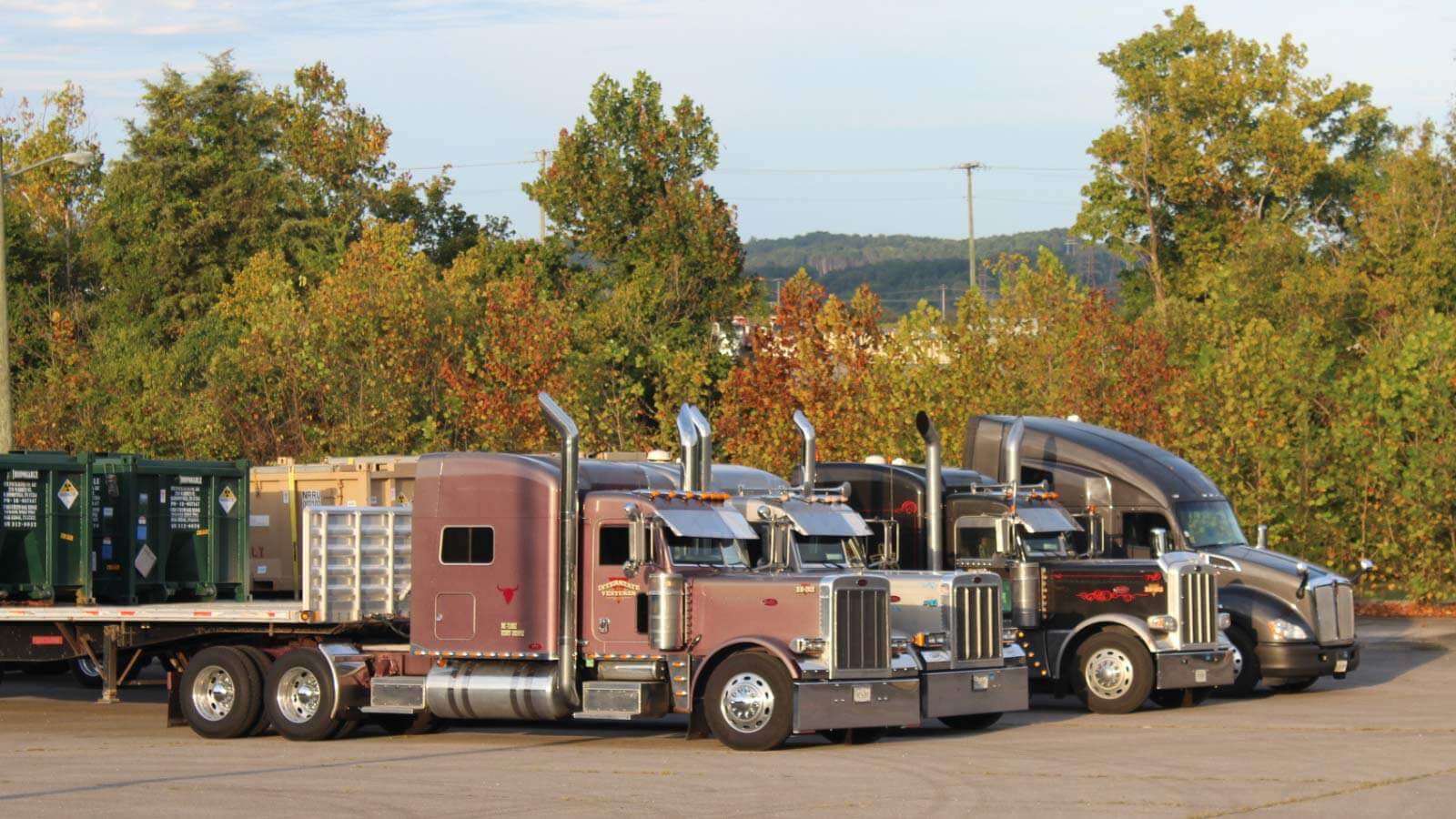
In the world of transportation, few endeavors carry as much responsibility and potential risk as the movement of hazardous materials. Whether it’s radioactive substances, explosive materials, or other dangerous cargo, ensuring the safety and reliability of the transportation fleet is paramount. Turnkey has an on-site shop dedicated to maintenance & equipment. In this blog post, we will delve into the crucial role that regular maintenance plays in managing a fleet composed of tractor semi-trailers, trained drivers, and specialized equipment for the transportation of hazardous materials.
Safety First:
The transportation of hazardous materials is a high-stakes operation that demands an unwavering commitment to safety. One of the primary ways to uphold this commitment is through regular maintenance of the entire fleet. A well-maintained fleet is not only more reliable but also significantly reduces the risk of accidents and ensures the safety of both the drivers and the public.
Tractor Semi-Trailers:
Tractor semi-trailers are the backbone of any transportation fleet, and their maintenance is especially critical when dealing with hazardous materials. Routine inspections and repairs are essential to identify and address potential issues before they escalate. This includes checking the braking systems, tires, lights, and coupling mechanisms to guarantee that every aspect of the semi-trailer is in optimal condition.
Trained and Qualified Drivers:
While the equipment is crucial, the drivers are the ones navigating the challenges of the road. Regular training and qualification programs ensure that drivers are well-equipped to handle the unique demands of transporting hazardous materials. Continuous education on safety protocols, emergency procedures, and regulatory changes keeps drivers sharp and ready to respond effectively in any situation.
Specialized Equipment:
Transporting hazardous materials requires specialized equipment designed to meet strict safety standards. From containment systems to ventilation units, every piece of equipment must be meticulously maintained to prevent leaks, spills, or other potential disasters. Regular inspections and testing of specialized equipment ensure compliance with regulatory requirements and enhance overall fleet safety.
Radioactive and Explosive Materials:
For fleets handling radioactive and explosive materials, the stakes are even higher. Rigorous maintenance schedules must be adhered to for vehicles and equipment, including radiation shielding and explosive containment measures. Additionally, ongoing monitoring and testing are essential to detect any potential leaks, ensuring that the transport of these hazardous materials remains secure and compliant with regulations.
Non-Hazardous Materials:
Even when dealing with non-hazardous materials, maintaining the fleet is crucial to prevent unexpected breakdowns or malfunctions that could disrupt the transportation process. A well-maintained fleet ensures on-time deliveries, minimizes downtime, and contributes to overall operational efficiency.
In the complex and high-risk world of hazardous material transportation, the importance of regular fleet maintenance cannot be overstated. Turnkey’s commitment to safety through proper maintenance practices not only protects the drivers, the public, and the environment but also ensures compliance with strict regulations governing the transportation of hazardous materials. By prioritizing the upkeep of tractor semi-trailers, qualified drivers, and specialized equipment, fleet operators can create a safer and more reliable transportation network for hazardous and non-hazardous materials alike.
